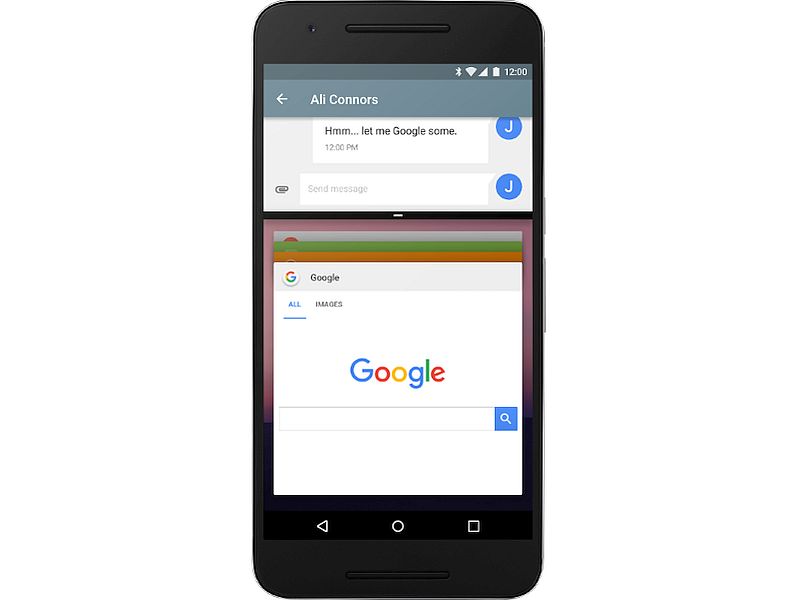The name of the new Android OS was not presented during the keynote. You can suggest a name by clicking here.
Performance
Google began by talking about the Vulkan graphics API. A new JIT compiler means that apps should install up to 75 percent faster, and compiler code should be reduced by 50 percent. The irritating Android is starting... dialogue box will be gone for good, thanks to this new compiler, as well. App size reduced by 50 percent, making for 75 percent faster installs.
Security
Google stressed improvements in security through file-based encryption, media framework hardening and seamless updates. In particular, these seamless updates mean that your phone will download new software images in the background and prepare them for the next time you restart your device. Thanks to the file-based encryption, you also won't need to enter your device password upon restarting.
Productivity
Productivity is also now a focus. Google says that most people only use their seven most recent apps from the recent app drawer, so the wheel will be limited to these. There is also going to be a Clear all button, which received a rush of applause for a grateful I/O audience. By double-tapping the recent apps button, you can quickly switch to the previous app, although, on many devices, this feature was already available via a long press on the same button.
The new multi-window mode: picture in picture. Multi-window mode sees two uses folded in: the standard, split-screen view, and picture-in-picture, designed for Android TV. This latter mode lets you shrink what's on the screen to a large box in the corner of the screen and do something else in the dominant, full-screen window. Elsewhere, replying from within notifications was covered, as well as notification visibility, letting you quickly block or hide similar notifications in the future via a long press, and support for Unicode 9.0 Emoji, all features we've already looked at below.
Virtual Reality
Native support for VR was also formally introduced. Daydream, a platform for mobile VR was announced, which comes with a set of specs phones have to meet in order to be compatible. Many manufacturers are making Daydream-compatible devices, including Samsung, HTC, LG, Xiaomi and Huawei. Daydream is the new Google VR platform.
Author : Saatvik Awasthi




No comments:
Post a Comment